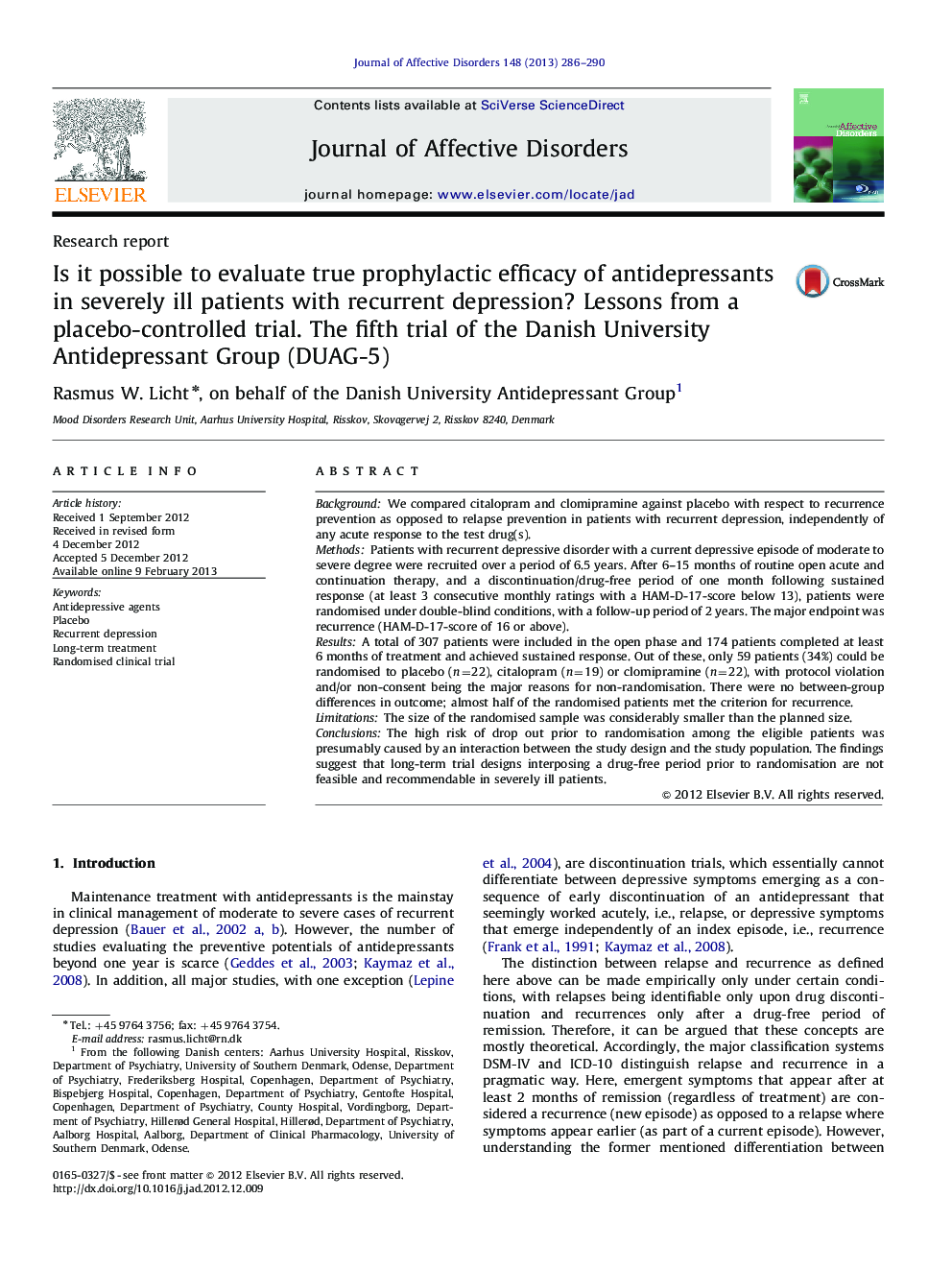| کد مقاله | کد نشریه | سال انتشار | مقاله انگلیسی | نسخه تمام متن |
|---|---|---|---|---|
| 6234434 | 1608174 | 2013 | 5 صفحه PDF | دانلود رایگان |

BackgroundWe compared citalopram and clomipramine against placebo with respect to recurrence prevention as opposed to relapse prevention in patients with recurrent depression, independently of any acute response to the test drug(s).MethodsPatients with recurrent depressive disorder with a current depressive episode of moderate to severe degree were recruited over a period of 6.5 years. After 6-15 months of routine open acute and continuation therapy, and a discontinuation/drug-free period of one month following sustained response (at least 3 consecutive monthly ratings with a HAM-D-17-score below 13), patients were randomised under double-blind conditions, with a follow-up period of 2 years. The major endpoint was recurrence (HAM-D-17-score of 16 or above).ResultsA total of 307 patients were included in the open phase and 174 patients completed at least 6 months of treatment and achieved sustained response. Out of these, only 59 patients (34%) could be randomised to placebo (n=22), citalopram (n=19) or clomipramine (n=22), with protocol violation and/or non-consent being the major reasons for non-randomisation. There were no between-group differences in outcome; almost half of the randomised patients met the criterion for recurrence.LimitationsThe size of the randomised sample was considerably smaller than the planned size.ConclusionsThe high risk of drop out prior to randomisation among the eligible patients was presumably caused by an interaction between the study design and the study population. The findings suggest that long-term trial designs interposing a drug-free period prior to randomisation are not feasible and recommendable in severely ill patients.
Journal: Journal of Affective Disorders - Volume 148, Issues 2â3, June 2013, Pages 286-290